It's all about the classical music composers and their works from the last 400 years and much more about music. Hier erfahren Sie alles über die klassischen Komponisten und ihre Meisterwerke der letzten vierhundert Jahre und vieles mehr über Klassische Musik.
Total Pageviews
Monday, February 26, 2024
Top 5 Electric Violin Cover ( By Asturia Quartet )
Sunday, February 25, 2024
André Rieu & Orchestre - Emmerich Kálmán Komm Zigáni spiel auf deiner Geige
Saturday, February 24, 2024
Westlife - When You Tell Me That You Love Me (Official Video) with Diana Ross
Maurice Ravel La Valse
Friday, February 23, 2024
Don Pasquale takes over PPO's concert
BY MANILA BULLETIN ENTERTAINMENT
AT A GLANCE
For its seventhconcert, thePPOwill haveaconcert-style performance of the Italian operaunder the baton ofPPOmusic director and principal conductor Maestro Grzegorz Nowak.

Filling the gap in the opera programming in the Philippines, the Cultural Center of the Philippines and the Philippine Philharmonic Orchestra present Italian composer Gaetano Donizetti’s Don Pasquale as part of its 39th concert season on March 8, 7:30 pm, at the Samsung Performing Arts Theater.
For its seventh concert, the PPO will have a concert-style performance of the Italian opera under the baton of PPO music director and principal conductor Maestro Grzegorz Nowak.
With the Italian libretto by Giovanni Ruffini, Don Pasquale is one of the most popular opera buffas, along with Rossini’s The Barber of Seville and Donizetti’s other opera The Elixir of Love. It is known for its bright and colorful vocal, and truthful depiction of characters and genuine emotions.
First premiered at the Théâtre Italien in Paris on Jan. 3, 1843, the three-act opera follows the story of a wealthy old bachelor named Don Pasquale who decides to take a wife and produce an heir to disinherit his nephew Ernesto for refusing to enter an arranged marriage. Dottore Malatesta, a friend of the Don, promises to help Ernesto and his widowed sweetheart Norina.
Things take a humorous turn when his scheming plans are thwarted by a series of comical misunderstandings and mistaken identities. Will Don Pasquale change his mind and realize that marriage is not for him, and allow the couple to happily live ever after?
Find out as opera soloists Dorota Sobieska (as Norina), Matheus França (as Don Pasquale), Byeong In Park (as Dr. Malatesta), Nomher Nival (as Ernesto), and Zadkiel John Yarcia (as Notary) bring to life its entertaining plot and memorable characters.
A talented soprano and stage director, Sobieska has participated in many opera productions and solo performances with an orchestra and piano. One of Ohio’s finest sopranos, her exceptional wide-ranging coloratura technique exemplifies glorious tones and passages with wonderful quality.
Brazilian bass with experienced remarkable growth in the solo landscape, França, is a product of the University of Brasília where he received his musical education. He also possesses a bachelor’s degree in Orchestral and Choral Conducting with excellence.
Alongside Dorota Sobieska and Matheus França, baritone Park will also take center stage. A student under acclaimed tenor Francisco Araiza at the University of Music and Performing Arts in Stuttgart, Germany, Byeong In Park has been actively performing in opera productions and concerts around Europe and Asia. Currently based in the Philippines, Park continues to involve himself in most opera productions and concerts with several orchestras such as the PPO, the Manila Symphony Orchestra, the ABS-CBN Orchestra, and the Cebu Philharmonic Orchestra.
Another soloist with a deep, rich voice and an alumnus of the internationally acclaimed high school choir, Boscorale, baritone Yarcia is currently a student taking up a bachelor’s degree in music, majoring in voice, at the University of the Philippines-Diliman. The young baritone soloist received medals in the Opera and Broadway categories when he competed in the 2018 World Championships of Performing Arts in California, U.S.A.
Completing the cast is Nival, a first-prize winner in the vocal male category of the 2007 National Music Competition for Young Artists (NAMCYA) and the 2015 Jovita Fuentes Vocal Competition Male Category. A well-established tenor who has performed major roles in many CCP productions, he was also the recipient of the Mr. and Mrs. Tommy & Simonetta Steyer Encouragement Award at the prestigious Marcello Giordani Foundation International Vocal Competition 2013 in Vero Beach, Florida.
Tickets to PPO Concert VII: Don Pasquale are priced at Php3,000 (Orchestra Center), Php2,000 (Orchestra Side), Php2,500 (Loge Center), Php1,500 (Loge Side), and Php800 (Balcony 1).
The PPO concert season is made possible with partners SSI Group, Inc., TBWA\SMP, Ascott Bonifacio Global City, and Lyf Malate Manila.
Creating a New Music World: Liszt’s Hungarian Fantasia
By Maureen Buja, Interlude
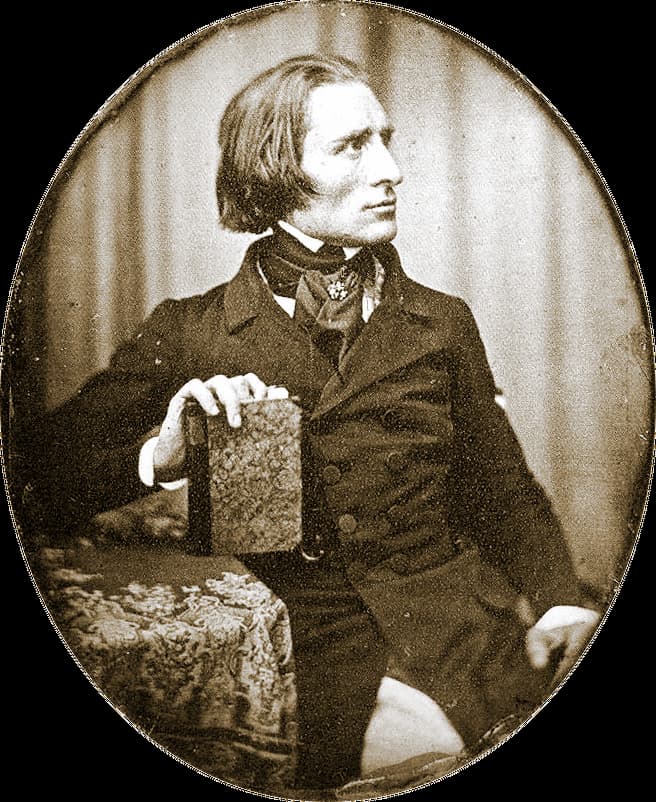
Hermann Biow: Franz Liszt, 1943
To look at where Liszt got this material, we have to look back through his own catalogue. Liszt’s Magyar Rhapsodiak/Ungarische Rhapsodien, S242/R105c, which was written for solo piano around 1846–1847, uses many of the same melodies that appear later in his Hungarian Rhapsody No. 14 in F minor, S242/R106, perhaps the most famous of his Hungarian Rhapsody cycle of 19 works, written in 1847.
Some of the melodies in the 14th Rhapsody come from Hungarian folk songs, such as ‘Magosan repül a daru’ (The Crane Flies High), which is used in the slow introduction, and the well-known ‘Koltó csárdás’ is used in the quick section, while others are of ‘uncertain origin’, and may, in fact have been written by Liszt himself.
In the case of the Fantasie über ungarische Volksmelodien (Fantasia on Hungarian Folk Melodies), S. 123. Liszt created a work for piano and orchestra that takes the earlier works for piano solo and transforms them into something greater. The piano ‘improvisations’ are set against a dancing orchestral backdrop that only serves to place them in greater contrast.
The work was dedicated to Hans von Bülow, one of his early students and eventual husband of his daughter Cosima (who later left von Bülow for Richard Wagner). The premiere was given in Pest, Hungary, on 1 June 1853, with von Bülow at the piano.
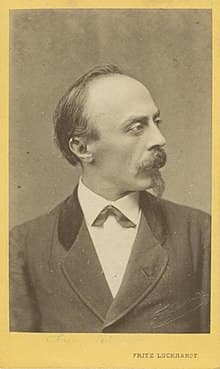
Fritz Leuchart: Hans von Bülow
This 1953 performance was recorded with Julian von Karolyi on the piano and Edmund Nick leading the Munich Philharmonic Orchestra. The orchestra was founded in 1893 and was the orchestra for three important Mahler premieres: His symphonies nos. 4 and 8, and was where the posthumous premiere of Das Lied von der Erde, conducted by Bruno Walter, was given. Wilhelm Furtwängler made his conducting debut with the orchestra in 1908. Due to the loss of players, the orchestra ceased during WWII but was restarted by the city of Munich under new leadership and its current name. The leadership by Sergiu Celibidache from 1979 to 1996 restored the orchestra’s reputation and quality. Celibidache was succeeded by some of the leading conductors of the modern age: James Levine (1999–2004), Christian Thielemann (2004–2011), Lorin Maazel (2012–2014), and Valery Gergiev (2015–2022). In 2023, Israeli conductor Lahav Shandi was announced as chief conductor starting in the 2026–27 season.
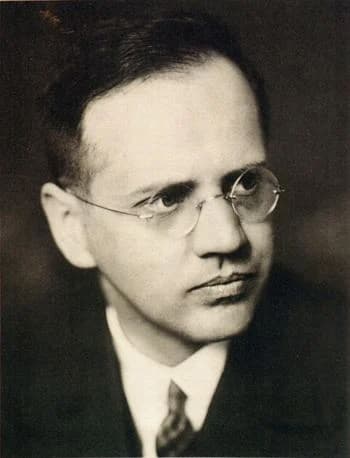
Edmund Nick
Edmund Nick (1891–1874) was a German conductor, composer, and music critic. Although his degree was in law from the University of Graz in 1918, by 1919 he was working as an accompanist in Breslau. In 1933, he moved to Berlin and in 1945 to Munich, where he was a cabaret director and then, in 1947, chief conductor of the Bavarian State Opera. He was professor (1949) at the Hochschule für Musik und Theater München and from 1952–1956, was head of the music department of West German Radio, Cologne.
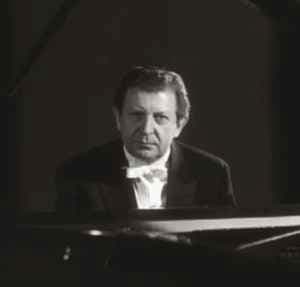
Julian von Karoly
Julian von Karolyi was a German-Hungarian pianist (1914–1993) who studied with Josef Pembaur, Jr., in Munich, Max von Pauer in Leipzig, Alfred Cortot in Paris, and Ernő Dohnányi in Budapest. He was known for his interpretations of Chopin and Liszt and made his debut recital in Berlin in 1934. He continued to perform throughout the war in Hungary, Germany, Spain, and Scandinavia. After the war, he made his base in Munich and started a series of international tours through Europe, North and South America, and Asia.
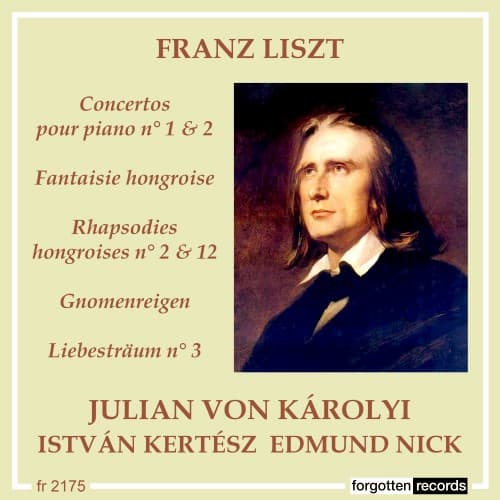
Performed by
Julian von Karolyi
Edmund Nick
Orchestre Philharmonique de Munich
Recorded in 1953
Charlie Chaplin: The Fiddle and the Tramp
Did you know that Sir Charles Spencer Chaplin (1889-1977), probably the most famous and most important actor in the silent film era, was a committed amateur violinist who also composed a number of his film scores? Long before Chaplin contemplated an acting career, he turned to music to escape the abject poverty of his youth. Charlie grew up in the London district of Kennington with his mother, who had no means of income. As a result, the young lad was twice sent to the Central London District School for paupers. When his mother was committed to a mental asylum, Charles and his brother were sent to live with their estranged father. Charles Sr. was a severe alcoholic who died at age 38 from cirrhosis of the liver.
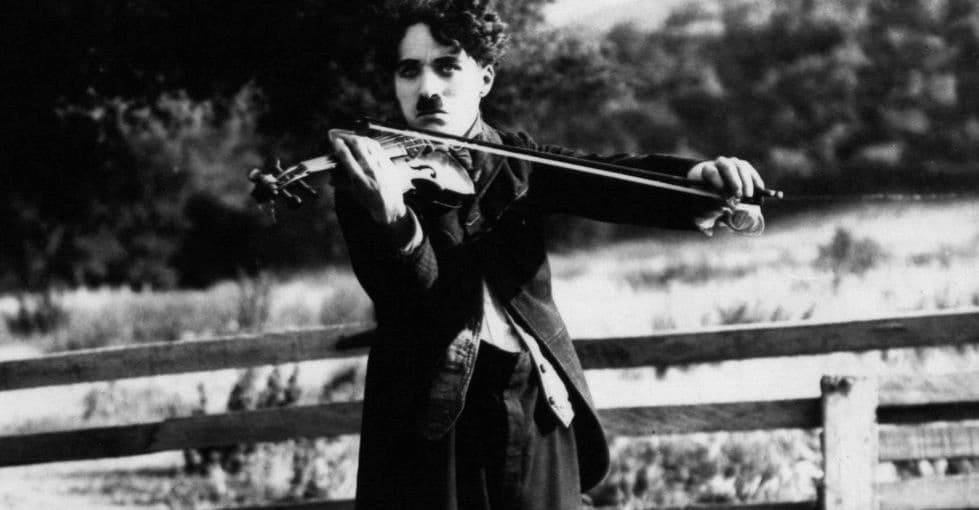
Charlie Chaplin in The Vagabond, 1916 © Limelight Magazine
Given the dismal state of his upbringing, it is not surprising that Chaplin was looking for a way out. And initially, Chaplin turned to music. “I had great ambitions to be a concert artist, or, failing that, to use it in a vaudeville act,“ he writes. “Each week I took lessons from the theatre conductor or from someone he recommended. As I played left-handed, my violin was strung left-handed with the bass-bar and sounding post reversed.” Practicing his violin from between four to six hours a day, and combining it with his acting talents, Chaplin had become a rising talent in the English music hall by age 16. And soon his fortune changed as the prestigious Fred Karno Company signed him to an extended contract. On his second American tour, Chaplin was scouted for the film industry and began appearing for Keystone Studios in 1914. For his second camera appearance, Chaplin selected the “Tramp” costume with which he became identified, and by 1926 he was a global phenomenon.
Despite an insanely busy filming schedule, Chaplin always found time to play the violin. A press release of 1917 suggested, “Every spare moment away from the studio is devoted to this instrument. He does not play from notes excepting in a very few instances. He can run through selections of popular operas by ear and if in the humor, can rattle off the famous Irish jig or some negro selection with the ease of a vaudeville entertainer. Chaplin admits that as a violinist he is no Kubelik or Elman but he hopes, nevertheless, to play in concerts some day before very long.” Chaplin’s ambitions to appear on the concert stage seem to have cooled by 1921, as he suggested in an interview. “I used to play my violin a great deal up to a couple of years ago, but since then I’ve hardly touched it. I simply have lost interest in such things.” Maybe realizing that he could not seriously compete on the concert stage, Chaplin turned his attention to writing film music.
Charlie Chaplin: Smile
Chaplin had always been interested in composing, and he even started a music publishing company in 1916. Although this venture was not successful, he composed all his scores to motion pictures starting with City Lights in 1931. Since he was not a professional musician, he needed help in creating his scores. Chaplin would sing or play his tunes to the composers Davie Raksin, Raymond Rasch or Eric James, who would further develop and score the tunes. Chaplin composed three hit songs, among them “Smile” written for Modern Times in 1936. Impressively, Chaplin also received an Oscar for his theme to Limelight, awarded “Best Original Score” in 1973. As for his violin performances, Chaplin played twice on screen. In The Vagabond of 1916 he uses his violin to seduce a gypsy girl, and in the autobiographical Limelight of 1952, he played a faded music-hall star. Chaplin was a close friend of Jascha Heifetz, and at a party Heifetz picked up Chaplin’s violin and was unable to play it. Chaplin took the instrument and played some Bach, remarking, “You see! I am made inside out and upside down. When I turn my back on you on the screen you are looking at something as expressive as a face.”
How Can I Be a Better Musician?
Ten Top Classical Musicians Share Their Tips
Over the years, we’ve had the honor of talking with many of the greatest musicians in classical music today.
Today, we’re gathering some of their best advice for musicians in one article. If you ever find yourself stuck in a rut creatively, we’re here to help!
Here’s some of the best advice our experts have given us:
1. Try yoga!
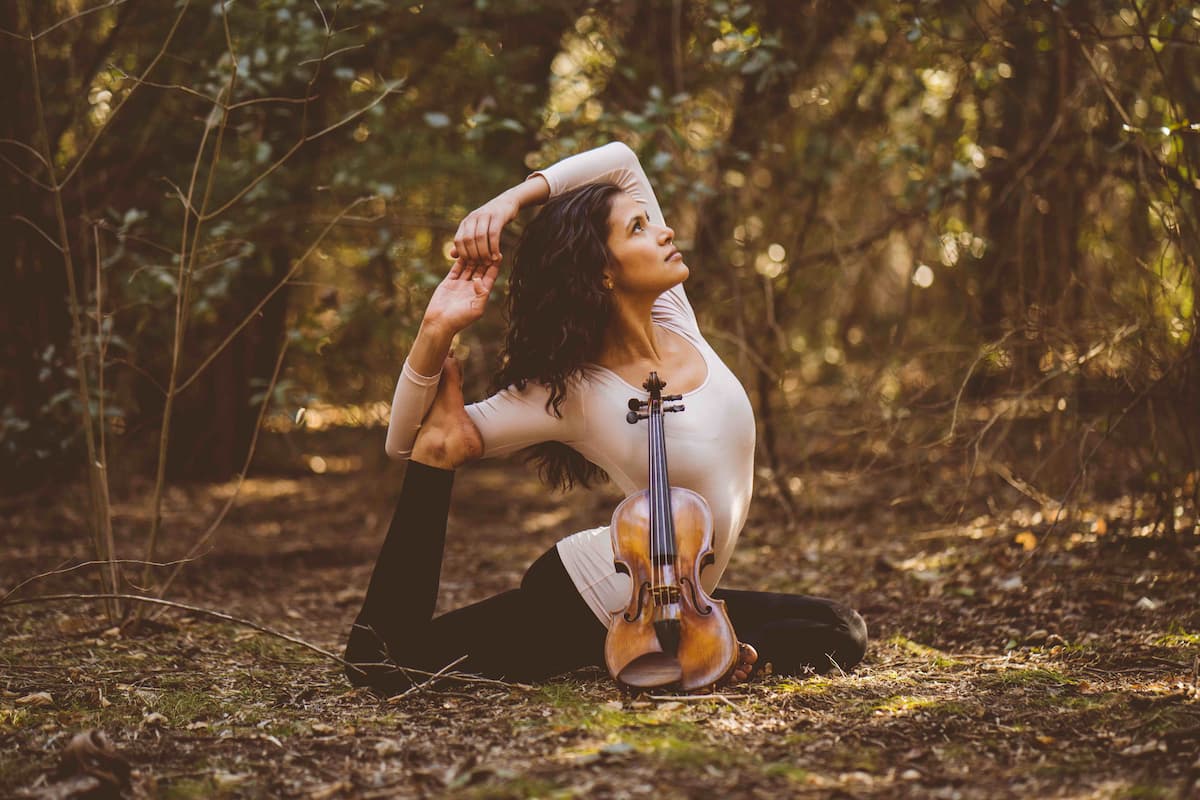
Violinist Elena Urioste
With the amount of travel and moving through the world, and with the flexibility that our extremely irregular profession requires of us, something like a yoga or mindfulness practice – even if you spend just five minutes breathing or doing some gentle stretches at some point in the day – can be a real safe haven for us, a sort of refuge.
Violinist Elena Urioste
Yoga and other practices that make you more mindful will help you be more aware of your surroundings and more “plugged-in” to what you’re thinking about and playing.
Remember, you’ll never be able to play your best if you’re not taking care of yourself mentally, emotionally, and physically.
2. You can teach yourself how to perform.
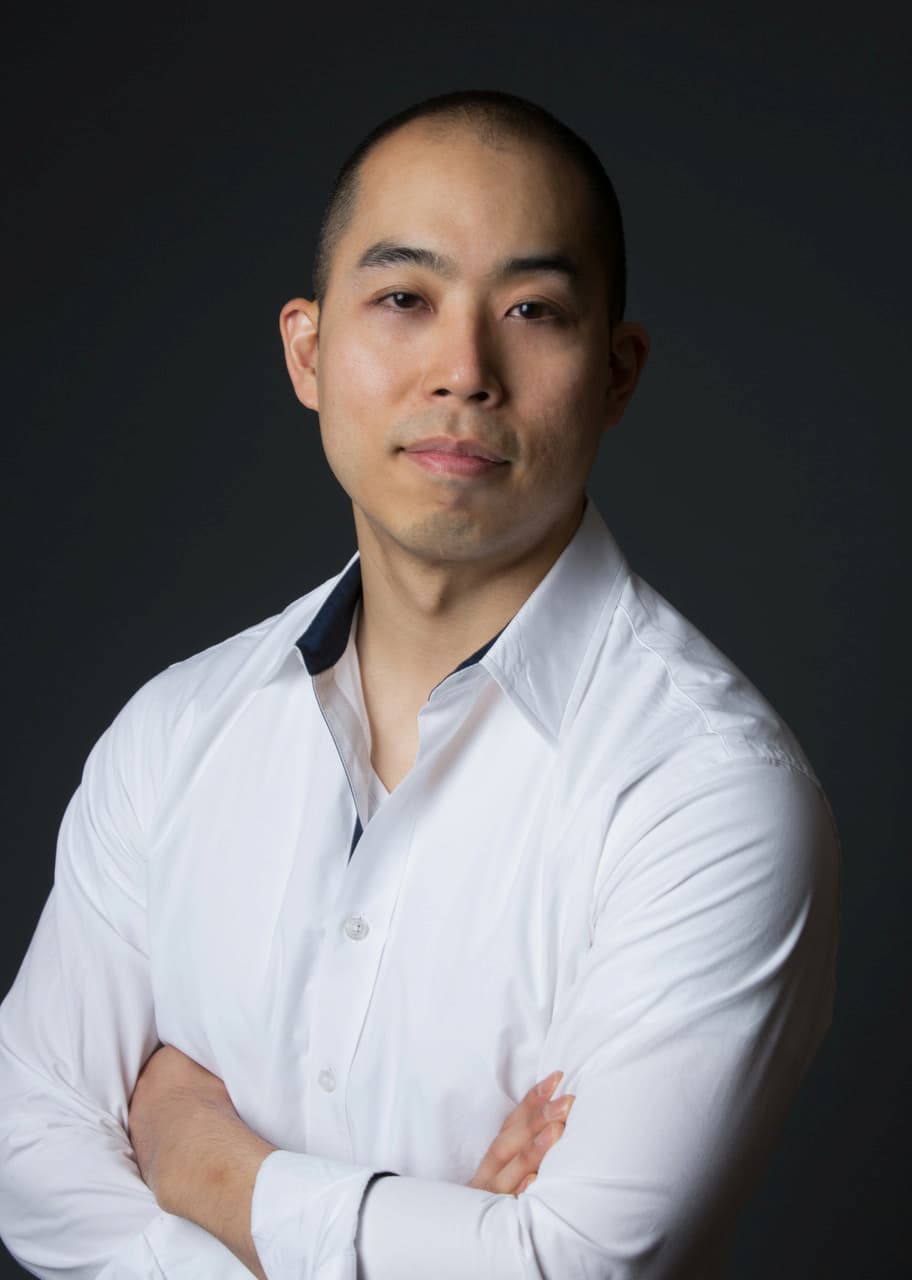
Noa Kageyama © Rosalie O’Connor
Learning how to practice more effectively and learning how to prepare for performances – especially how to get into a better headspace, and how to stay laser-focused in a performance (and what exactly to think about or focus on during a performance) changed my experience on stage. It was incredibly empowering to discover that I had control over my learning rate, and that I was also in charge of how well performances went too.
Performance Psychologist Noa Kageyama
In our March 2023 conversation with him, Noa Kageyama reframed the experience of performance anxiety.
He posits that it’s not something we’re always destined to have, but that changes we can make can provide more control over our performances.
3. Don’t be afraid of failure. In fact, give yourself the chance to screw up.
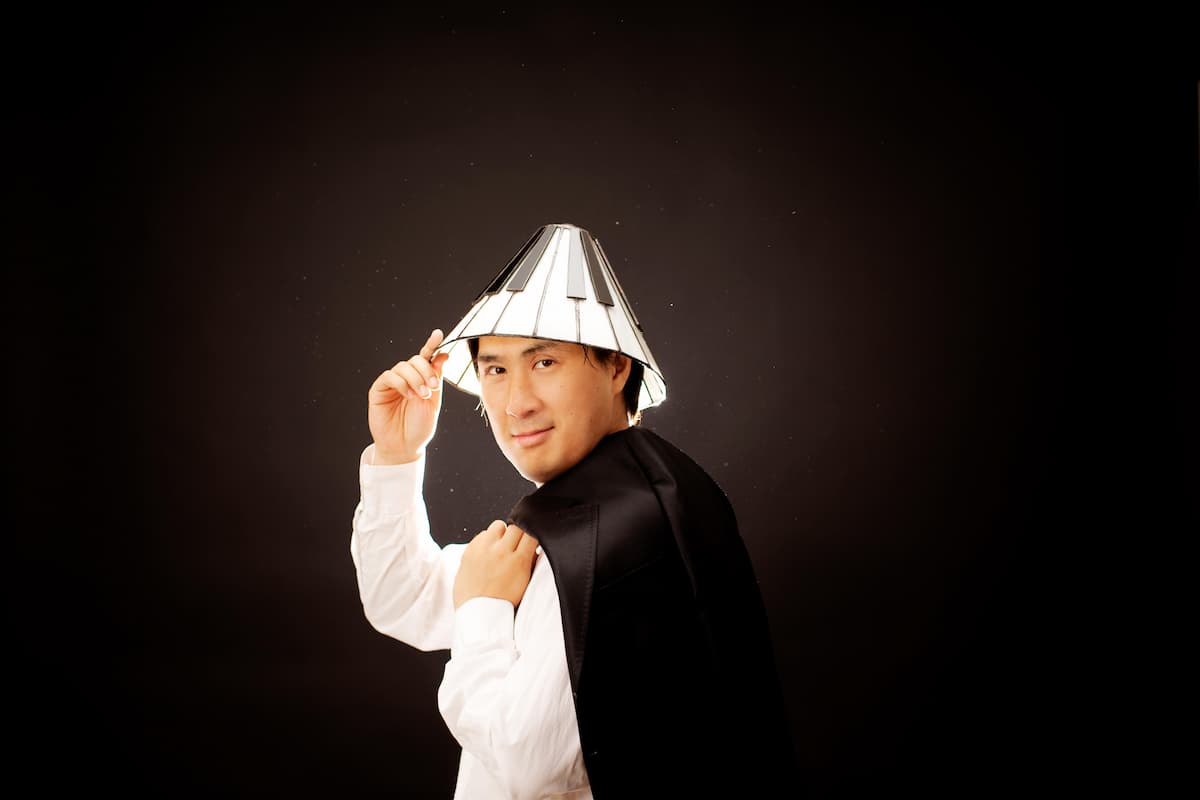
Pianist Hyung-ki Joo © Julia Wesely
The problem is there’s such a concentration on having to be ‘perfect’, whatever that means. But then you get cornered into this area of fear: fear of failing. And when you’re in that place of fear, creativity has no room to breathe and breed, because you don’t give yourself the chance to screw up.
Pianist Hyung-ki Joo
Pianist Hyung-ki Joo, half of the comedic duo Igudesman & Joo, is an expert at embracing creativity and fleeing fear! He has co-created a hugely popular comedy stage act to make musicians and music-lovers laugh. And as comedian Stephen Colbert has said, it’s impossible to laugh and be afraid at the same time. Something to keep in mind next time you take the stage!
Mozart Will Survive
4. Try adding narration or other disciplines to your musical performances. It might help the audience connect with you!
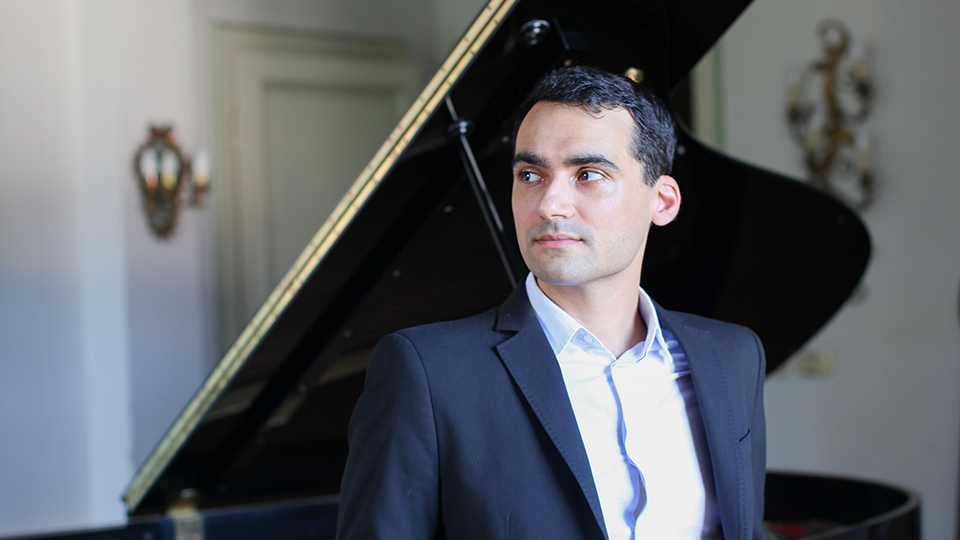
Tal Walker
I feel that making classical music accessible and approachable through diverse programming (of both performers as well as composers) is a good starting point. I found that narrated and/or interdisciplinary performances often help the audience to better connect with the music. Any other creative initiatives (such as performing in non-conventional venues) is always helpful to de-associate classical music with the status symbol elitist image it sometimes possesses and make it relevant and exciting for younger audiences.
Pianist Tal Walker
The next time you’re planning a performance, see if you can join forces with other artists, whether by including their art in the lobby, inviting dancers onstage, or bringing in actors to provide some kind of historical context via narration.
Collaboration is the name of the game when it comes to creating engaging performances.
5. Program contemporary music. Remind people that not all classical music is old or dead.
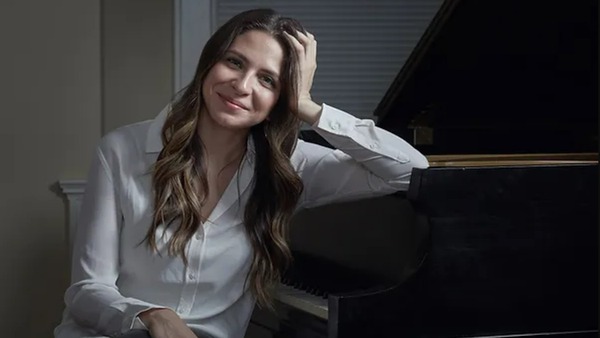
Brianna Matzke
The art form of classical music is a living, breathing art form! I can’t tell you how often a new acquaintance is surprised to learn that there are still living composers; there is too much of an association between classical music and being “old” and/or “dead.” If we continue to promote and program beautiful, moving, and surprising contemporary music, audiences around the world will understand that classical music has relevance for their lives. Ultimately, I hope that by promoting contemporary music we can build larger and stronger communities surrounding our music-making and also that we can use our music-making to support our communities!
Pianist and Educator Brianna Matzke
As Brianna Matzke talks about in her full interview, presenting contemporary music isn’t just about crafting a performance. Done right, it’s also about fostering a sense of discovery and community between performers and audiences.
6. When learning a concerto, don’t just study your part. Study the orchestra part too, and be inspired by it.
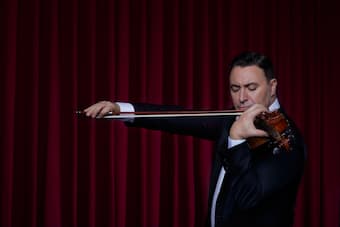
Maxim Vengerov © IDAGIO – Diago Mariotta Mendez
“Once you know the full score, it adds a new dimension to your performance. It’s no longer a violin piece with orchestral accompaniment… you can refer to one or another line in the orchestra and that’s where you draw your inspiration… The impact that the orchestra has on the soloist is vast. And if you’re not part of it, then it’s a different piece.”
Violinist Maxim Vengerov
In July 2022, it was our pleasure to talk to Maxim Vengerov, an absolute legend of violin playing. His advice for learning all parts of your solo will change how you study concertos, whether you ever play them with orchestras or not.
Maxim Vengerov Plays Waxman, Brahms, Rachmaninoff, Ravel and Bazzini
7. Don’t desire a solo career just for the sake of having a solo career. Prioritize opening new doors and reaching more people instead.
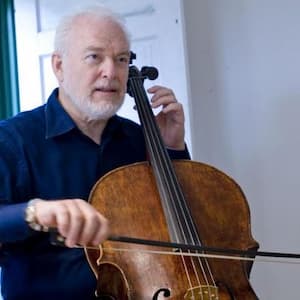
Paul Katz
I first think we need to consider: why do we aim to become musicians? The ambition for a solo career and practicing six hours a day or more while letting the world go by, doesn’t necessarily bring fulfillment. We each need to consider how we can be the best musician and person we can be, while continuing to represent the highest artist values and generating purpose. How can the next generation fill a niche, open new doors, reach more people?
Cellist and Educator Paul Katz
There are a number of times when pursuing a professional musical career can feel like crossing things off a very stressful, high-stakes checklist. In his interview with us, Paul Katz, founder of the website CelloBello, reminds musicians to stay grounded and relevant.
CELLOBELLO: Virtuosity, Expression, Mastery, Education
8. Don’t be afraid to play challenging or complex music for kids!

Evelyn Chang
Make classical music available for all children! Music is music, it’s personal that either you like it or not. When you play music to very young kids they don’t categorise the music, they just know if they enjoy it or not. And yes, it takes more time and some learning to know how to listen to music of more complex textures in order to enjoy it on a different level, but it’s all a matter of time and exposure, in my opinion. The earlier they start the longer they can enjoy it. Knowing how to listen to music is one of the most wonderful gifts in life.
Pianist and Composer Evelyn Chang
Evelyn Chang works with young kids and knows her audience very well. So next time you have young audience members, bring out a challenging piece and see what they think! They may well be more receptive than the adults in your audience.
9. You don’t have to be a professional musician to accomplish incredible things in music.
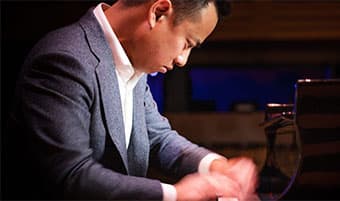
© Paul Wee
The single most important point I would stress is to remember that your love for music and your instrument isn’t linked to your identity as an aspiring or professional musician. A genuine love for music isn’t the same thing as being in love with the idea of being a successful professional musician. Sadly, I’ve known many musicians who have confused the two. Ask yourself at every stage why you are doing what you are doing, and never lose sight of why you fell in love with music in the first place: treasure that flame. The joy and riches to be found in music are far bigger than any career, and if you don’t end up being a professional musician, that won’t detract from your ability to enjoy all the treasures that music has to offer – in fact I sometimes wonder whether it leaves you better placed to appreciate them.
Pianist and Barrister Paul Wee
The astonishing Paul Wee sustains a career as a barrister and as a pianist! In our full interview, we talked to him about balancing these two demanding identities…and also why having a day job might actually be a wise path for an ambitious musician to consider.
10. Don’t wait for inspiration to hit. Actively work to find out what inspires you.
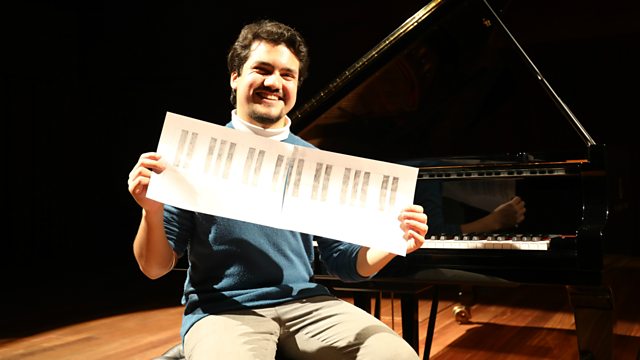
Andrew Garrido
© BBC
I’ve found you can’t just wait to be inspired, rather you need to find inspiration from within, and that comes from the love of music; if you find new ways to love music, you’ll find new ways to be inspired.
Pianist Andrew Garrido
We hope that something in this list inspired you to think about music-making from a new angle.
Thank you to our contributors and our interview subjects for sharing their combined centuries of knowledge with our readers!